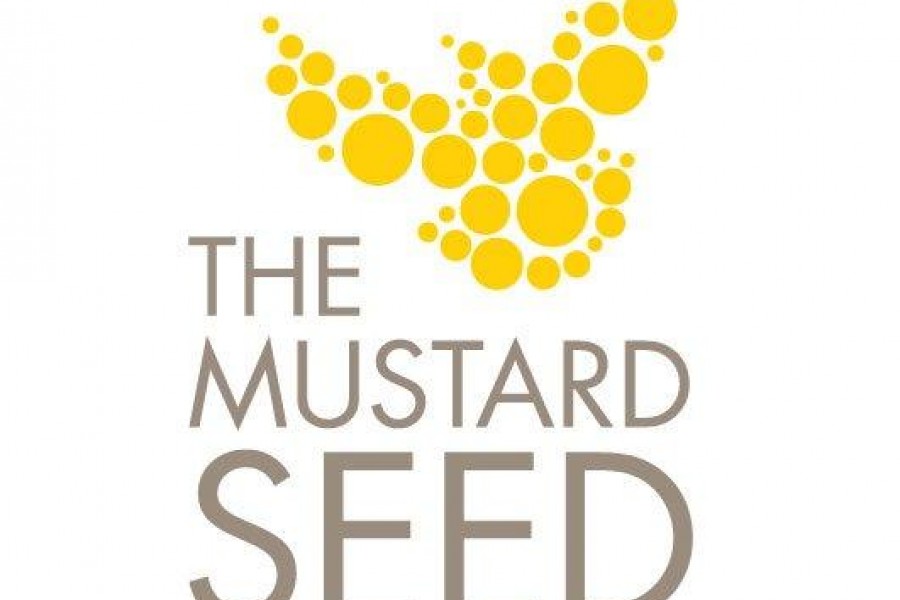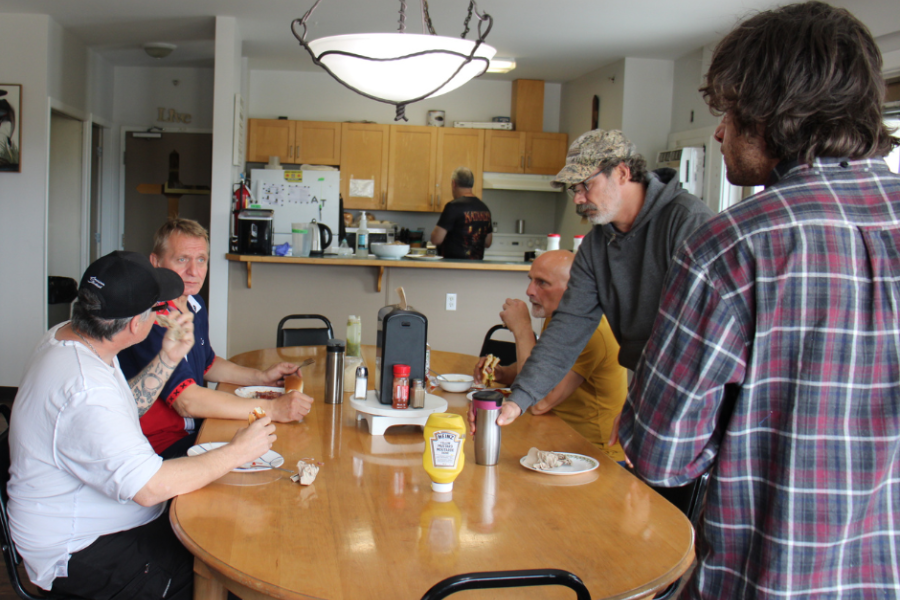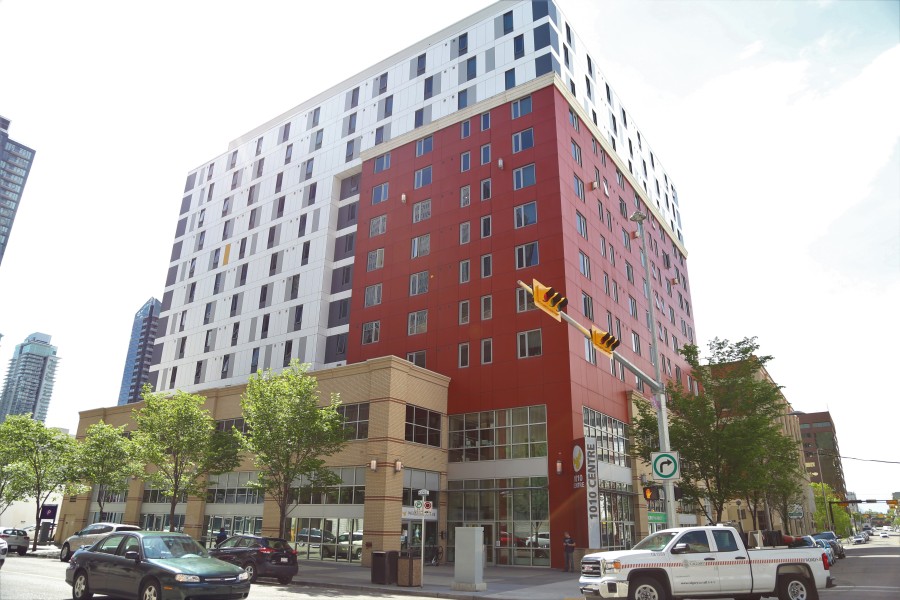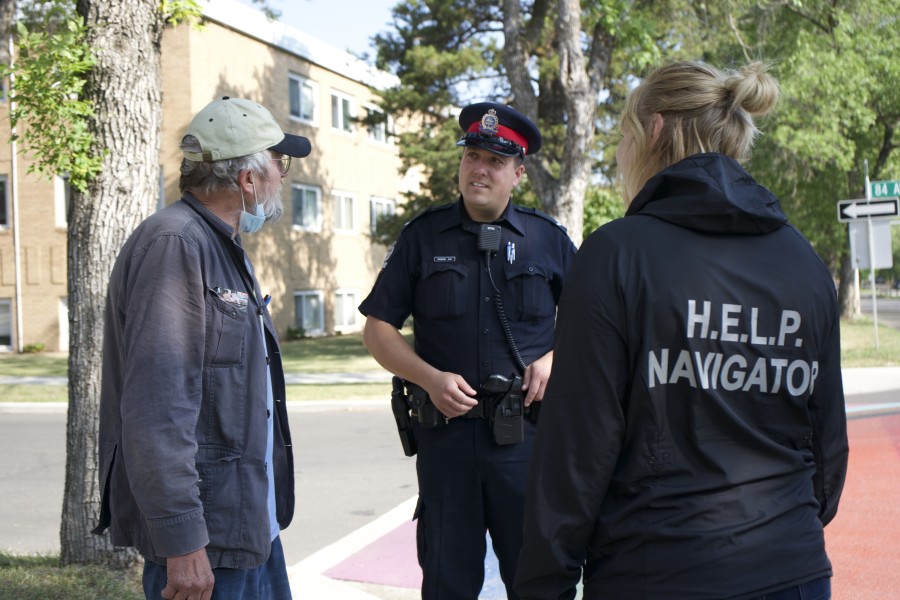Written by: Landon Hildebrand, Director of Housing and Clinic Development at The Mustard Seed in Edmonton
Together, it is our goal to raise awareness to the current opioid crisis, and ensure we as a community are better placed to intervene, decreasing the chances of death due to drug poisonings, and increasing the efficiency of existing treatments.
Harm reduction, is an often misunderstood concept which finds itself at odds with more traditional abstinence theories of addiction work. We understand our discussion about drug treatment and intervention is not a ‘versus’ conversation. You don’t have to have one or the other, and in fact, they can work very well at different stages of treatment or for different individuals. What works for one does not always translate to working with everyone.
Harm reduction in itself places paramount importance on the sacredness of life.
Harm reduction seeks to sustain life so that life can continue. Through providing safer materials such as sterile needles, clean water, naloxone (which stops the action of opioids in our system), and even supervision, we stand a greater chance of ensuring that individuals do not die as a result of opioid or other drug poisoning. This is a radical approach because in effect, harm reduction says that we will do our best to reduce the impact of the harm that can occur from substance use – so that you can live another day.
Critics will say that this activity of harm reduction translates simply to allowing those with addiction to live another day and use another day. To this I would say, possibly yes, but only if harm reduction starts and stops at this point.
What we understand about addiction gives us an insight about what we do as an intervention.
If we misunderstand addiction itself, we will likely have limited success in our efforts.
Gabor Maté (2008) in his book In The Realm of Hungry Ghosts: Close encounters with addiction remarks that never, in his many years working on the downtown east side of Vancouver, has he encountered addiction without suffering. Suffering prior to the addiction itself. I would echo this point, while I don’t always find a specific trauma point in my own work with addiction, I always find source pain. A point I make to my clients is that the root cause of addiction is not the seductive nature of a preferred substance. The root causes of addiction is the systemic brokenness we experience in our lives. Whether that be isolation, despair, hopelessness, physical pain, emotional pain, loss, fear, separation, loneliness, trauma, stress, and so on, substances work to curb and control the brokenness we experience because of these stressors to our system.
If we address addiction and work with addiction through the lens of brokenness as Maté and countless others encourage – myself included – the role harm reduction can play comes into greater focus.
If the root cause is brokenness – separation from community, surrounding said brokenness with intentional compassionate community will likely serve as a far better antidote then prolonged stigmatization and continued isolation. The fruits of stigmatization are only going to be further isolation. With further isolation comes a greater need to control and curb the damaging effects of said isolation. Opioids work efficiently to curb this feeling. By filling the void of absent social connectedness – a profound result of opioids interaction with our brain and bodies – opioids can limit the impact this pain has on us. This is why opioids are often a secret addiction that only becomes apparent when the dangers of chemical dependence become visible.
When we can be compassionately present for people experiencing brokenness and the result of said brokenness then we can offer two things to those experiencing addiction:
We can offer life, and we can offer community.
Through valuing the sacredness of life and treating the root causes instead of the symptoms of pain, we provide an opportunity to experience restorative, compassionate community.
About Landon Hildebrand:
Landon is a Registered Psychologist and the Director of Housing and Clinic Development with The Mustard Seed. Landon completed his education with Providence Seminary, where he served as an Adjunct Instructor teaching in the area of psychology. Prior to working with The Mustard Seed, Landon worked with Alberta Health Services in Whitecourt and Edmonton region, as well as various private practices. Landon is interested in integrating neuroscience and theology into both practice and theory.
Twitter: @lanbonh
Instagram: landon_psych_yeg
Website: https://www.approachpsych.ca



